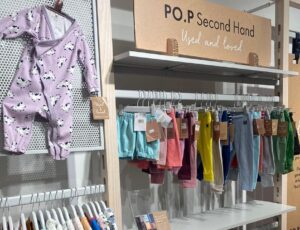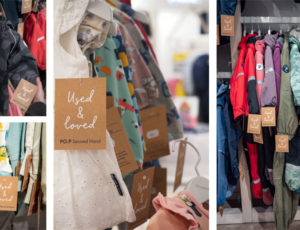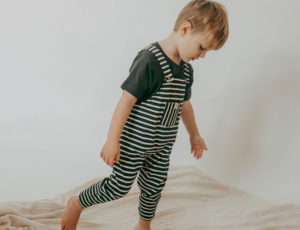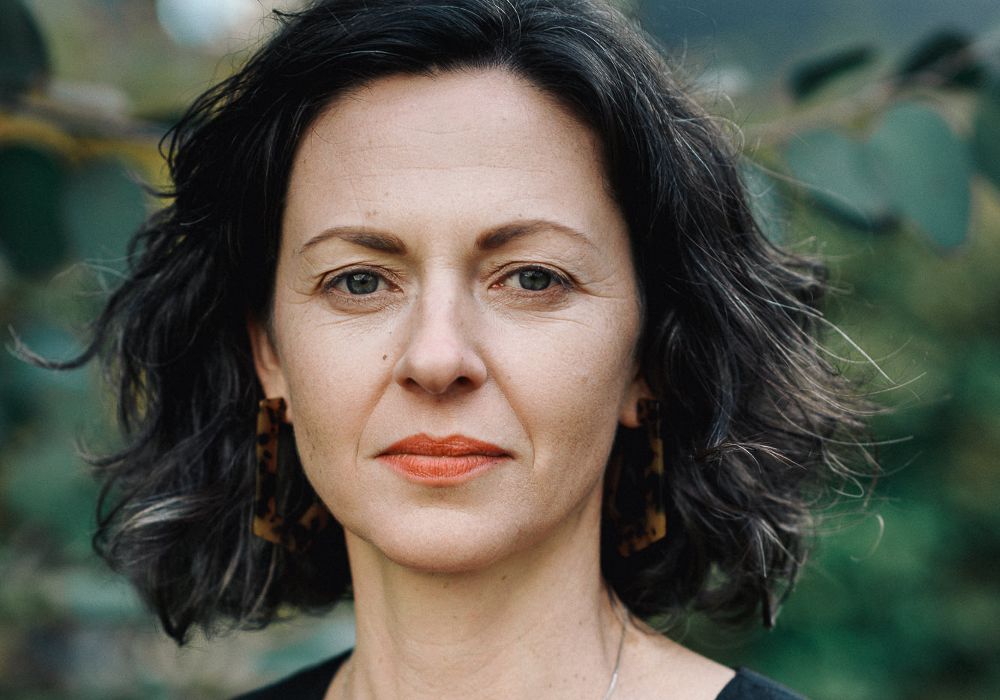
Izzie Eriksen is the founder of ApparelXchange, a social enterprise on a mission to reduce the impact of clothing on our planet through the reuse, repair and recycling of childrenswear. Here, she tells Laura Turner about her vision to create a sustainable clothing system that is integrated into every community, and how childrenswear and schoolwear brands and retailers can get on board.
Laura Turner: What’s the backstory to ApparelXchange?
Izzie Eriksen: I founded ApparelXchange in 2018 as a direct result of experiencing the scale and problem of clothing waste from young people starting school. Clothing consumption and post-consumer waste are huge issues for the UK and globally, and I was really motivated to provide alternatives to buying new, especially since children grow so quickly. Since then, we have innovated, evolved, and survived a pandemic and the ongoing impacts of the cost of living crisis. However, we are still innovating to provide more ways to keep circulating clothing for longer. Both to reduce the impact of new clothing on our planet, but also to capture this valuable resource for social good.
LT: As a social enterprise, how does ApparelXchange differ from a traditional business?
IE: We describe ApparelXchange as a social circular enterprise. This means our social and environmental purpose and values are at the heart of our reuse services, which in turn influence and determine all our business-related decisions. We are different because we focus on delivering social and environmental outcomes from our business. We don’t have shareholders, and while our financial bottom line is important, our commitment to our planet and people is equitable if not a higher priority.
LT: Where do you source the pre-loved goods and how do you process them?
IE: We are based in Glasgow and have a UK-wide reach through our online and eBay store. We take in donations of unwanted clothing, footwear and accessories from householders and schools’ lost property and also organise clothing collections through corporate partners and other large organisations. We have a large city centre warehouse where we sort donations for reuse or recycling, including washing and making minor repairs. Our sorting process occurs in several stages to ensure we reuse garments and footwear that meet high standards.
LT: What do you cover in terms of product categories and age range?
IE: We take in all types of clothing and footwear: school uniform to casualwear; partywear to activewear, and all types of shoes. The range of products is vast and also really exciting from a creative perspective, with all the colours and styles of the garments. We focus on clothing for 4-18 years, so school-aged children. This is due to the educational aspect of our work to empower young people to be more conscious consumers of fashion, which is delivered in collaboration with local primary and secondary schools here in Glasgow. We say, “knowledge is empowerment,” and we equip young people with the information to understand the impact of the clothing supply chain on our planet and global communities and to make more sustainable choices.
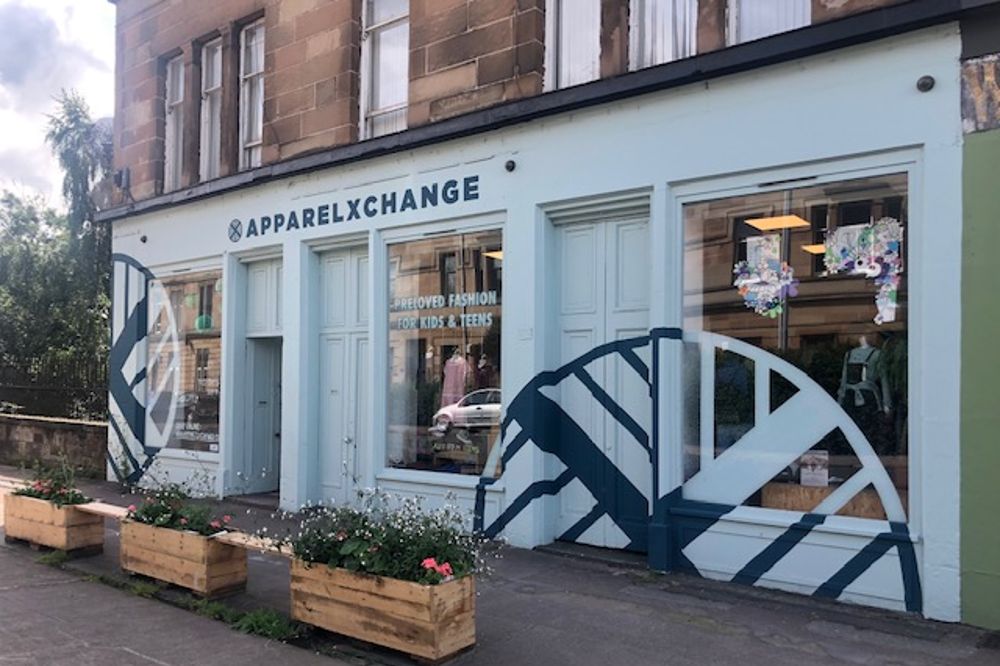
LT: How can childrenswear brands and retailers work with you?
IE: We are not working with any childrenswear or schoolwear brands or retailers at this stage, but really want to. We have several services that we can offer brands and retailers, including reuse and redistribution. Furthermore, we are developing a solution to capture data on product performance. These types of services can feed vital data on carbon and social impacts back to those brands that are reporting on their ESG. We really hope this article reaches some readers who are open to working with us.
LT: How can brands and retailers benefit from working with you?
IE: There are many benefits to working with us. Above all, as a transparent social circular enterprise, we commit to looking after the clothing and the brand while creating social value. Specifically, the benefits we can provide include: data on product performance at the point of discard, capturing information on product condition and any faults that could inform future design; reuse of product that might otherwise have gone to waste, saving carbon both through reuse and by avoiding recycling and landfill emissions, and opportunities for brands to have social impact through the redistribution of clothing, supporting families by providing low-cost or free clothing and alleviating the cost of living crisis. Finally, we are a solution to socially responsible circularity at a local level, which is our USP, and where collaborations based on operational strengths can go a long way to making a difference for all parties.
LT: Can you tell us more about your crowdfunder?
IE: We ran our crowdfunder over the summer to raise funds to support our pre-loved clothing package service, which provides bespoke free clothing packages to families most in need. There are costs to reusing clothing. It is labour-intensive and needs space for sorting and storage, all of which come with overheads. We reached out to our customers and partners to contribute towards these costs and managed to raise over £7,000 and some match funding from the British Airways Better World Community Fund. The crowdfunder remains open and is a great way to contribute towards supporting families and children with essential clothing so they can thrive.
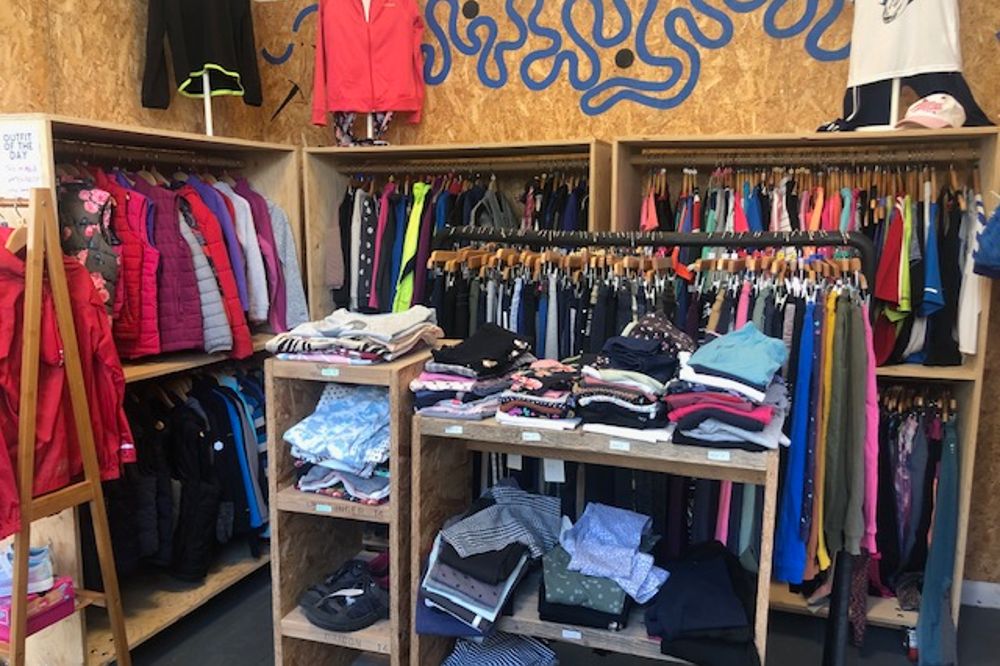
LT: Are you taking any other measures to reduce environmental impacts and add social value to the business?
IE: Even though the environment and social value are at the heart of our business, we still strive to continue to reduce our environmental impacts and increase our social impacts. The next steps we are taking in terms of our operations to achieve our environmental purpose is to move off gas and onto renewable electric energy for the heating system at our shop. We are also seeking investment in an electric or hybrid work van and electric bike, as we recently scrapped our diesel vehicle. Socially, we will grow the number of social agencies we work with to provide more clothing packages. We will also be focusing further on workshops for clothing repair, teaching hand-sewing skills to young people in our shop space, as well as including volunteering for high school pupils and activism workshops in our offer to encourage more young people to get their voices heard.
LT: What are the short and long-term plans for ApparelXchange?
IE: We are focusing on growing our customer base, both for our local Glasgow shop and across the UK for our online store. We have just launched the Fair Fashion Collective, which is a collaboration of local businesses establishing an accessible and inclusive shopping destination for fair fashion in the Southside of Glasgow. In the medium term, we are also working on our Clothing System for a City, which is about making sure the valuable resource of clothing is harnessed for social good. We have a vision of an integrated children’s clothing reuse system that could be replicated in any city, and we are currently developing our plans and partnerships to take this even further forward. Subsequently, we are seeking to work with brands and retailers that are interested in this vision too and being part of transforming the consumption of clothing towards more conscious producer and consumer behaviour while building brand loyalty. We believe that we need to act and fill the void where government and policy are either non-existent or too slow and not ambitious enough for the change we need for the future health of our planet, ecosystems and future generations.
LT: Where can interested parties obtain further information?
IE: We would love to hear from you – please email me at izzie@apparelXchange.co.uk. We are keen to develop collaborations, partnerships and relationships with companies that have similar values and are keen to find ways of re-engineering and redesigning the clothing system in the UK.





